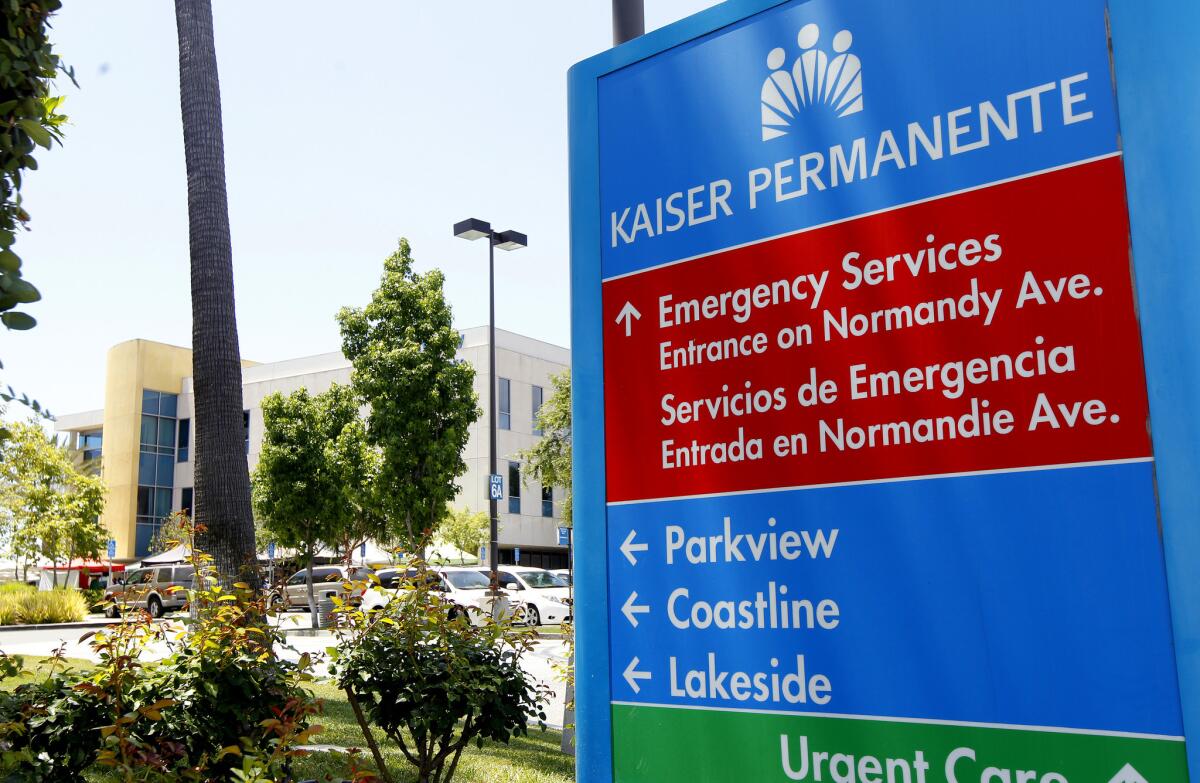80,000-plus Kaiser workers may strike Oct. 14, but talks continue

Unions representing more than 80,000 Kaiser Permanente workers said their members will participate in a weeklong strike starting Oct. 14 to protest the company’s labor practices.
The healthcare giant’s workers will strike in California and five other states as well as the District of Columbia, the unions said. The strike will affect employees with jobs as optometrists, a variety of technicians, clinical laboratory scientists, housekeepers and hundreds of other positions — largely those who are not doctors, registered nurses or mental health workers.
A coalition of Kaiser Permanente unions announced the move in a news release Monday. With more than 80,000 workers, the October strike would be one of the biggest since 185,000 Teamsters went on strike at United Parcel Service in 1997, the coalition said.
Contracts expired at the end of September 2018, and unrest escalated in July when talks between the coalition and Kaiser stalled. Unions said they would take steps toward a potential strike. Kaiser employees and families marched through Oakland on Labor Day.
“Kaiser Permanente is supposed to serve the public interest in exchange for not paying income taxes and little to nothing in property taxes — an estimated tax break of more than $2.3 billion over the last two years. But in recent years, the corporation has departed from its community-oriented mission,” the Coalition of Kaiser Permanente Unions said in the release.
Kaiser Permanente Chief Executive Bernard J. Tyson issued a statement complaining that the union was setting a strike date despite active negotiations Monday as “an overt effort to gain leverage in bargaining.”
Kaiser is “committed to offering a package that’s aligned with all of our other unions that keeps our employees among the best paid in wages and benefits in the industry. We are committed to our workforce who delivers on our mission every day and to our members’ demand for greater affordability of care and coverage from Kaiser Permanente,” Tyson said.
“I hope we will not have a strike on October 14, and we are preparing to deal with all scenarios to make sure our members are cared for.”
The union coalition listed some of its grievances, alleging Kaiser is sitting on billions in profits and reserves and enriching its top executives while outsourcing jobs to companies that pay less and offer fewer benefits. The coalition also said health insurance premiums rise each year hurting patients, and Kaiser doesn’t do its part in serving Medicaid patients, serving a disproportionately small number compared to the 21% of Americans overall who receive health insurance through Medicaid.
The company’s mental health workers in California are involved in a separate contract dispute. The National Union of Healthcare Workers rejected Kaiser’s latest offer in July, and, before that, called off a strike that was set to begin in June, after requests from leaders of the state Legislature that the company and workers continue to work toward an agreement.
More to Read
Inside the business of entertainment
The Wide Shot brings you news, analysis and insights on everything from streaming wars to production — and what it all means for the future.
You may occasionally receive promotional content from the Los Angeles Times.










